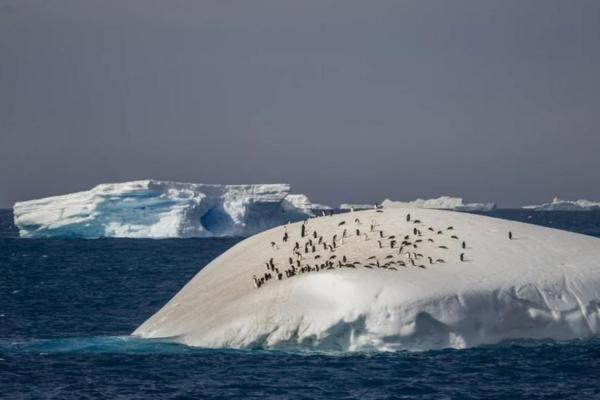Antarctica sea ice melts to a record low
PARIS


The Antarctic Ocean area covered by ice has shrunk to a record low, exposing the thicker ice shelves buttressing Antarctica’s ground ice sheet to waves and warmer temperatures, scientists reported on Feb. 16.
The National Snow and Ice Data Center (NSIDC) in the U.S. said Antarctica’s sea ice fell to 1.91 million square kilometers this week, the lowest extent since records began in 1979. The previous all-time low was set last year.
“With a couple more weeks likely left in the melt season, the extent is expected to drop further before reaching its annual minimum,” the NSIDC said in a statement.
Melting sea ice has no discernible impact on sea levels because the ice is already in ocean water.
But the sea ice rings Antarctica’s massive ice shelves, the extensions of the freshwater glaciers that threaten catastrophic sea level rise over centuries if they continue melting as global temperatures rise.
The NSIDC said “much of the Antarctic coast” has water that is now without ice, “exposing the ice shelves that fringe the ice sheet to wave action and warmer conditions.”
The Antarctic cycle undergoes significant annual variations during its summers of thawing and winters of freezing, and the continent has not experienced the rapid melting of the past four decades that plague the ice sheets of Greenland and the Arctic due to global warming.
But the high melt rate since 2016 raises concerns that a significant downward trend may be taking hold.
